About BayFoNet
What is BayFoNet
BayFoNet is the abbreviation for Bavarian Practice Based Research Network. This is a joint research project of five Bavarian Departments of General Practice in Würzburg, Erlangen, the LMU and TU Munich as well as Augsburg. BayFoNet is one of six networks in Germany whose establishment will be funded by the Federal Ministry of Education and Research (BMBF) (seit 2025 BMFTR) gefördert wird, um die Allgemeinmedizin durch eigene Forschungsprojekte zu stärken. Diese sind durch die Initiative Deutscher Forschungspraxennetze – DEGAM-ForNet. The associated coordination office is jointly run by the German Foundation of General Practice and Family Medicine (DESAM) and the Organization for Networked Medical Research in Germany (TMF) .
The responsibility for the overall coordination of the BayFoNet lies within the Department of General Practice at the University Hospital Würzburg. Structural tasks such as data storage, further training for general practices, etc. are solved jointly by the five participating locations in Würzburg, Erlangen, Munich (LMU and TUM) and Augsburg.
Each institute of general practice is the contact for the practices in the respective surrounding region. These practices play a central and extremely important role for the research network: on the one hand, in the form of their active participation in studies and the regional think tanks, but also as a target group for the application of the expected new evidence for everyday care.
Unterstützt wird BayFoNet von Kooperationspartnern in den Bereichen IT, Fortbildungen für Praxisteams und Studiendurchführung. Weiter fließen Impulse, Beratung und Arbeitsergebnisse aus dem Bürgerforum bzw. den Bürgerbeiräten, den regionalen Ideenwerkstätten und dem wissenschaftlichen Beirat in die Vorhaben des BayFoNet ein. Die Mitglieder des Projektbeirats werden regelmäßig über alle relevanten Netzwerkaktivitäten informiert und stehen mit ihrer Expertise den Instituten durch Rat und Tat zur Seite.
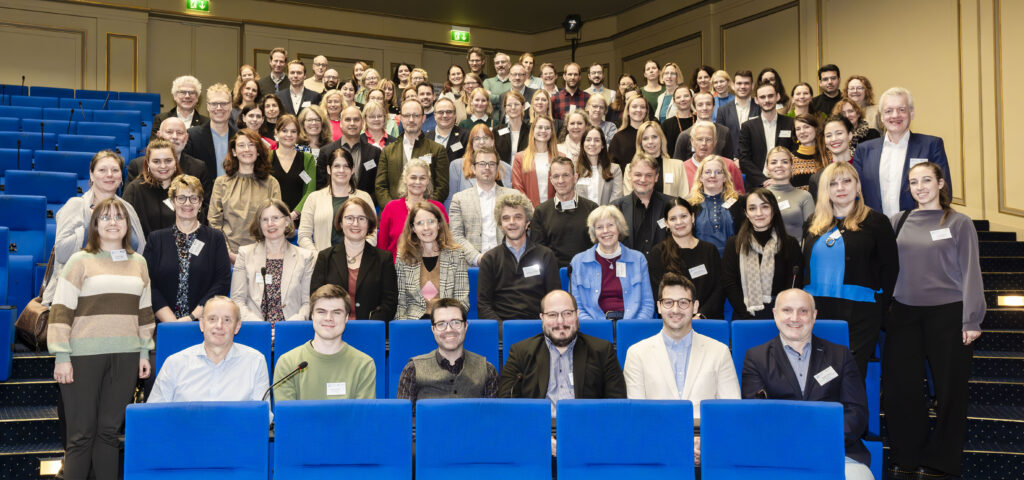
Mitglieder der Initiative Deutscher Forschungspraxennetze – DEGAM-ForNet beim Symposium 2024 in Berlin.
Foto: Lopata/axentis
Why is general practice research important?
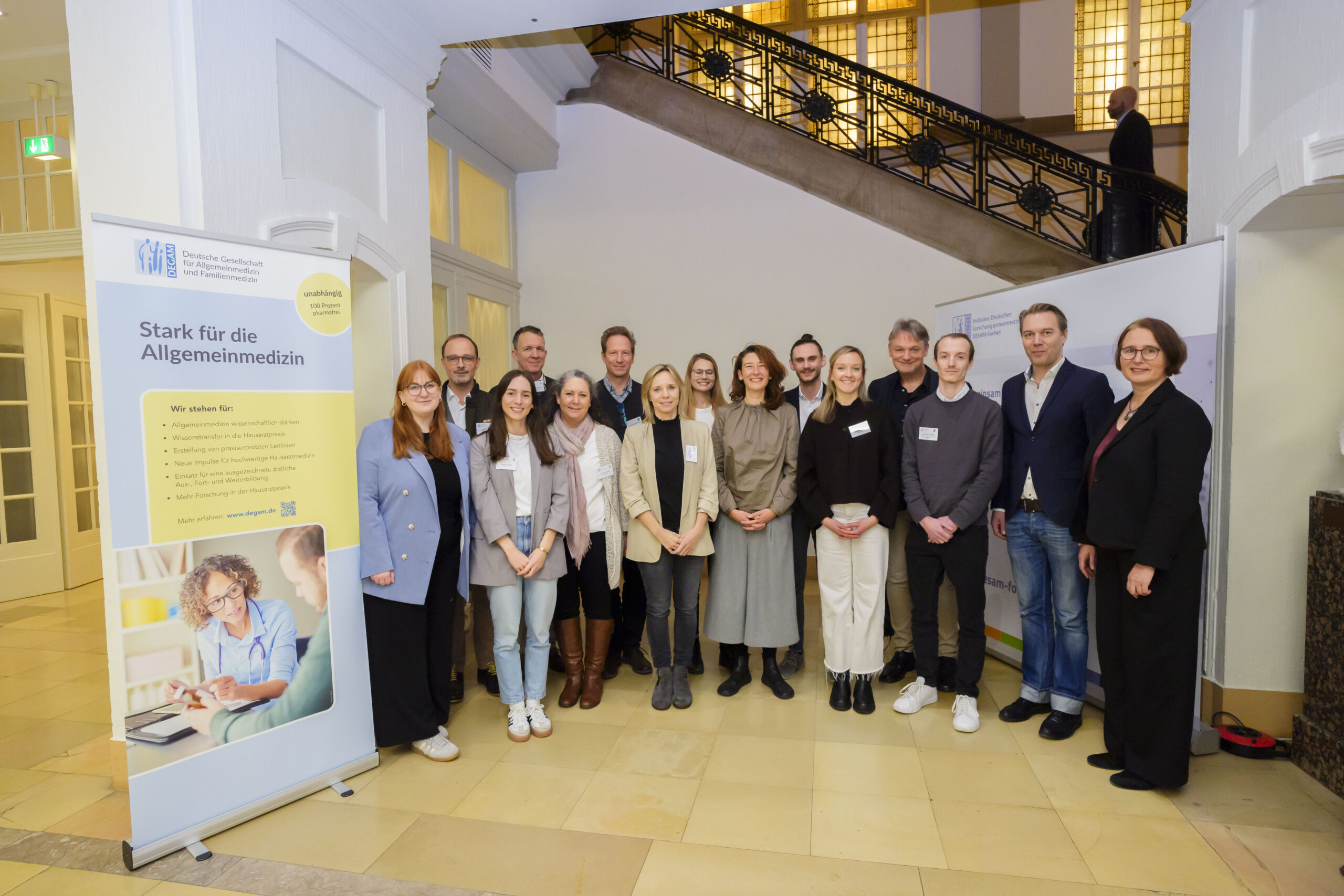
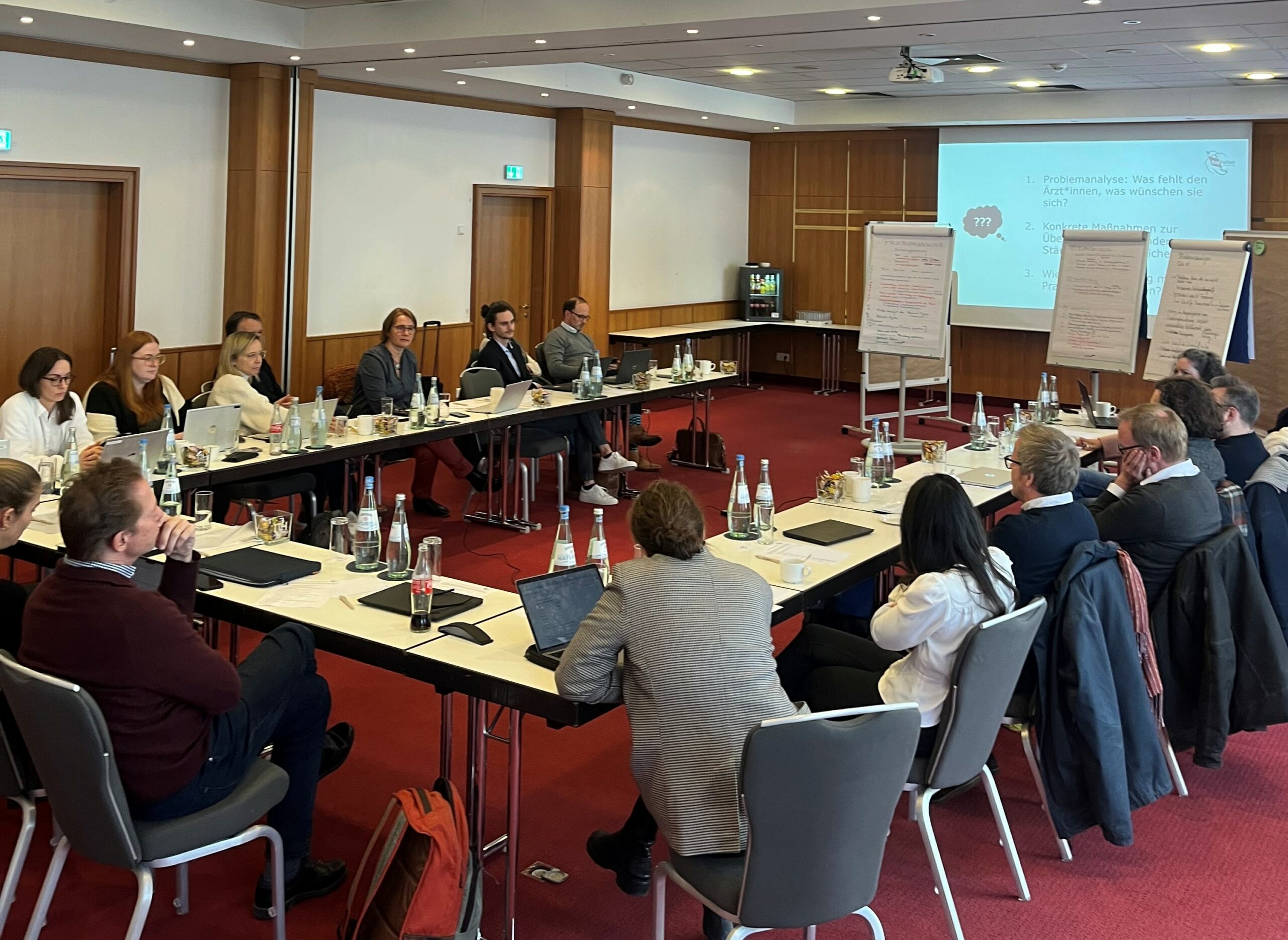
GPs act as a central point of contact for prevention, counselling, therapy and rehabilitation and have to make decisions of enormous professional breadth. Although a large proportion of all patients are cared for in the GP setting, there are too few studies that focus on the care situation of GPs and their patients. Clinical studies mostly take place in the hospital or specialist sector and are only partly or not at all transferable to the organisational structures of the GP setting. In contrast, the questions posed by GPs have often remained unanswered.
Therefore, it is necessary to establish a research infrastructure in primary care in Bavaria that enables patient-relevant research at a high level and increases research capacity. Countries such as the Netherlands, Great Britain or Canada, where such research practice networks have already been successfully implemented and whose positive experiences can be built upon, serve as models.
What are the aims of the project?
The central aim of BayFoNet is to establish a sustainable, lively and independent research network for GPs in Bavaria with space for a wide range of activities and exchange. For the next five years, we have set ourselves the goal of winning a total of 240 GP practices throughout Bavaria for active participation in BayFoNet.
The practice teams receive free training from us, which provides them with all the basics for active participation and conducting studies under everyday conditions in their practice in an understandable and pragmatic manner. This also ensures that uniform standards for data quality and patient safety are adhered to. The practices are supported by their supervising institutes on an equal footing and to the best of their abilities. More information is available at training modules.
The results of the Studies will help to provide answers to relevant questions of daily care in GP practice and to improve the evidence base for GP decisions. You can find out more about the institutes' current and planned projects under Studies.
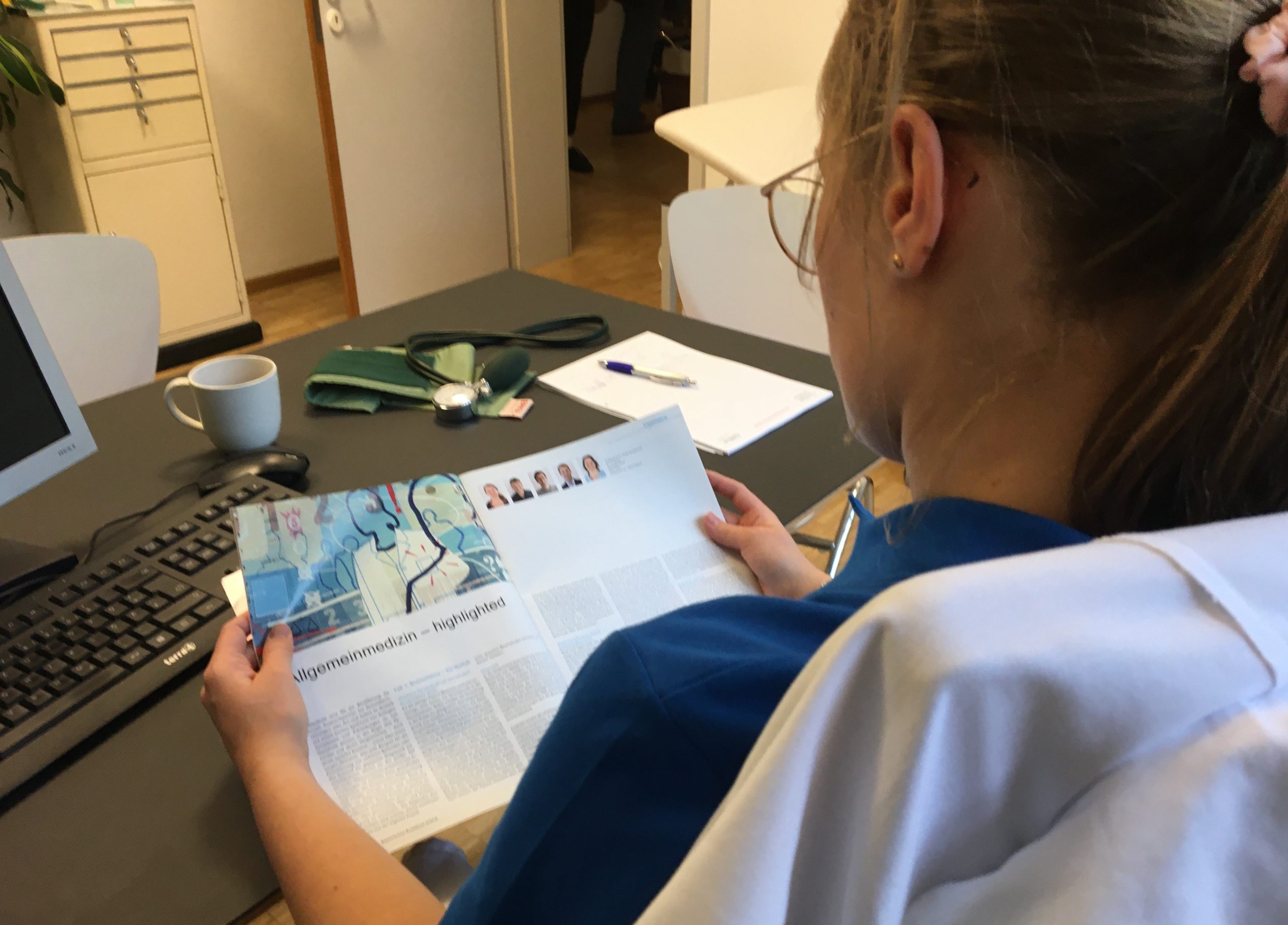
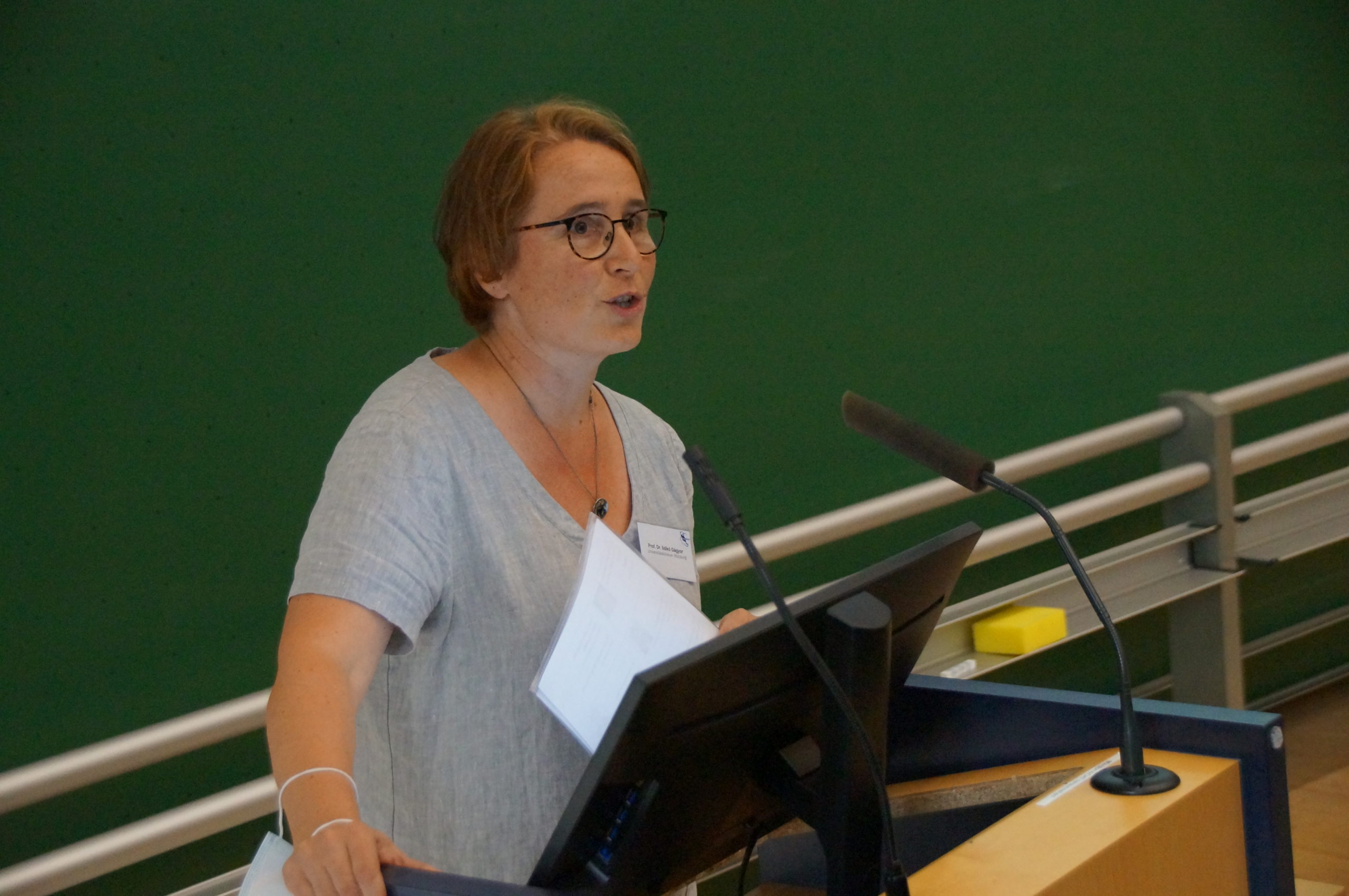
Furthermore, we would like to achieve a professional interweaving of practical knowledge and scientific methods through intensive professional exchange of experience and knowledge between GPs, practice teams and scientific staff of the institutes, e.g. in the regional think tanks in which GPs can also develop and implement their own research projects.
It is essential that we take into account the perspective of everyday experts, i.e. citizens, in our planning and projects. Both in the regional idea workshops and in the citizens' forum (Würzburg) or dialogue forum (Erlangen), citizens of age can participate in the process of research.
Last but not least, we are striving to raise further (primarily public) funds to ensure a permanent implementation of the network also after the funded 5 years and a continuum for the implementation of practice-relevant projects.
Network partners
- University Hospital Würzburg (Department of General Practice)
- University Hospital Erlangen (Institute for General Practice)
- Munich University Hospital (LMU) (Institute of General Practice and Family Medicine)
- Technical University of Munich (TUM) (Institute of General Practice and Health Services Research)
- University Hospital Augsburg (Department of General Practice)
Cooperation Partners
- Technical University Munich (Clinical Trial Centre Munich, MSZ)
- University of Würzburg (Institute of Clinical Epidemiology and Biometry, IKE-B)
- University Hospital Würzburg (Clinical Trial Center Würzburg)
- Reutlingen University (Department of Computer Science)
Project Advisory Board
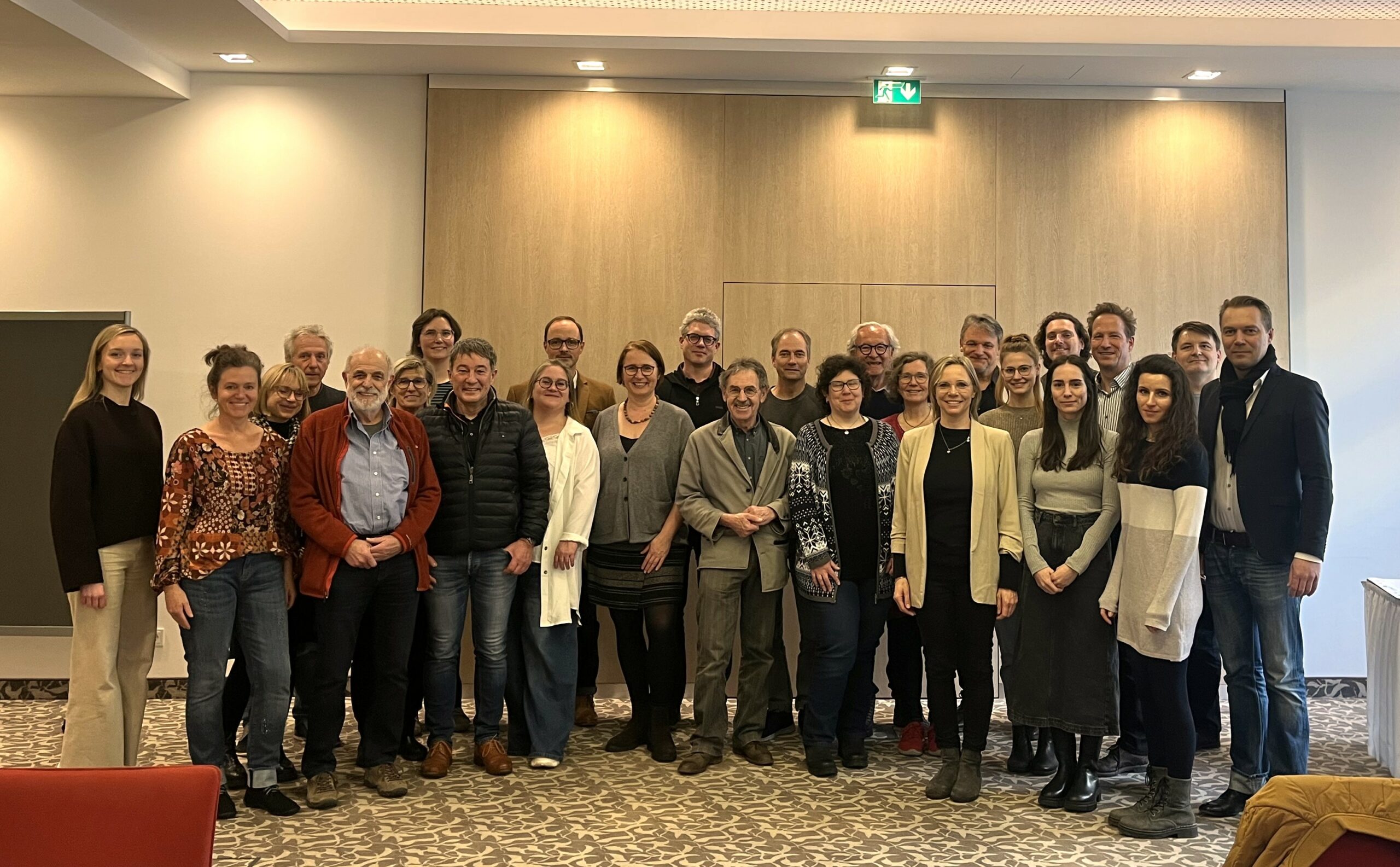
- AOK Bayern - Die Gesundheitskasse (health insurance)
- Bavarian Family Physician Association (BHÄV)
- Bavarian Health and Food Safety Authority (LGL)
- Young Bavarian General Medicine (JA-Bayern)
- Bavarian Association of Statutory Health Insurance Physicians (KVB)
- DIFUTURE – Data Integration for Future Medicine
- Technology, Methods and Infrastructure for Networked Medical Research (TMF)
The members of the project advisory board at the 1st meeting on 24 September 2020.
Scientific Advisory Board
- University of St Andrews (School of Medicine Medical & Biological Sciences), UK
- University of Bristol (Bristol Medical School: Population Health Sciences), UK
- Technical University of Munich (Institute for History and Ethics of Medicine)
- University of Münster (Institute of Epidemiology and Social Medicine)

